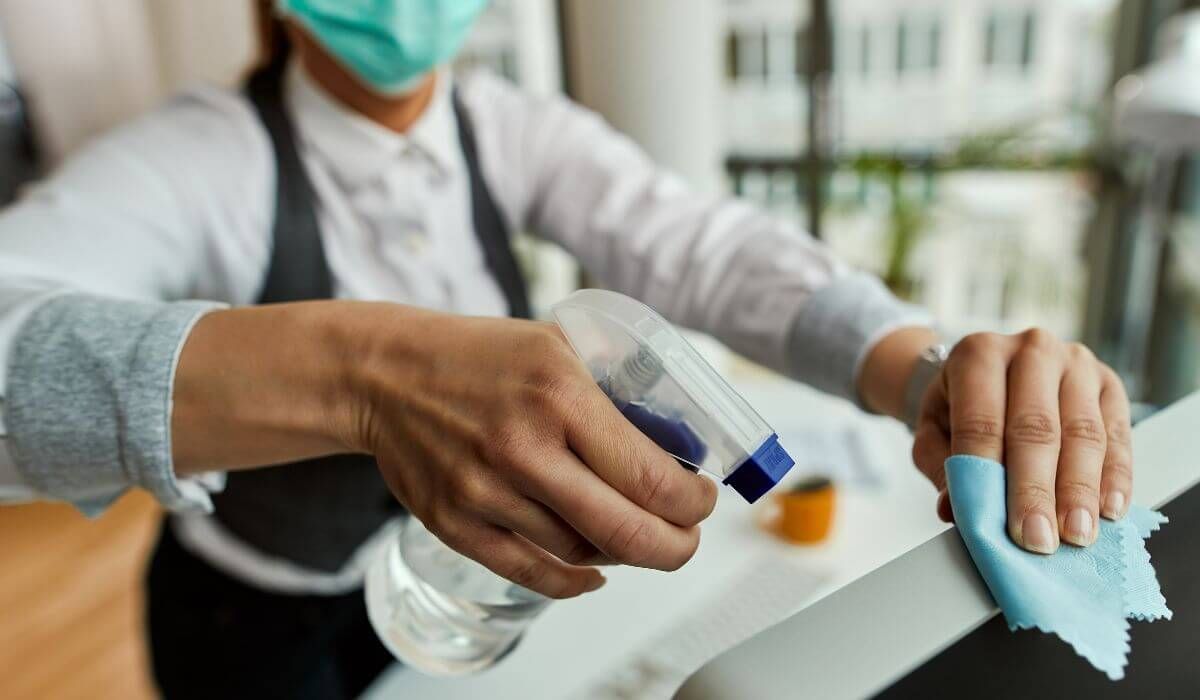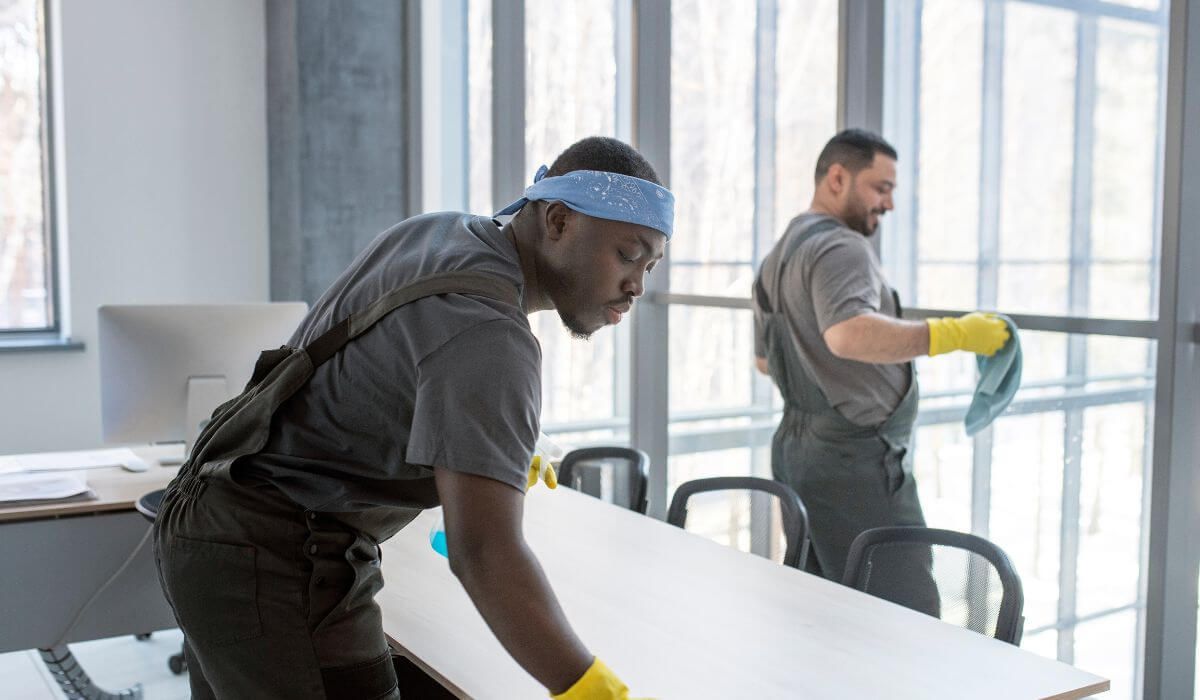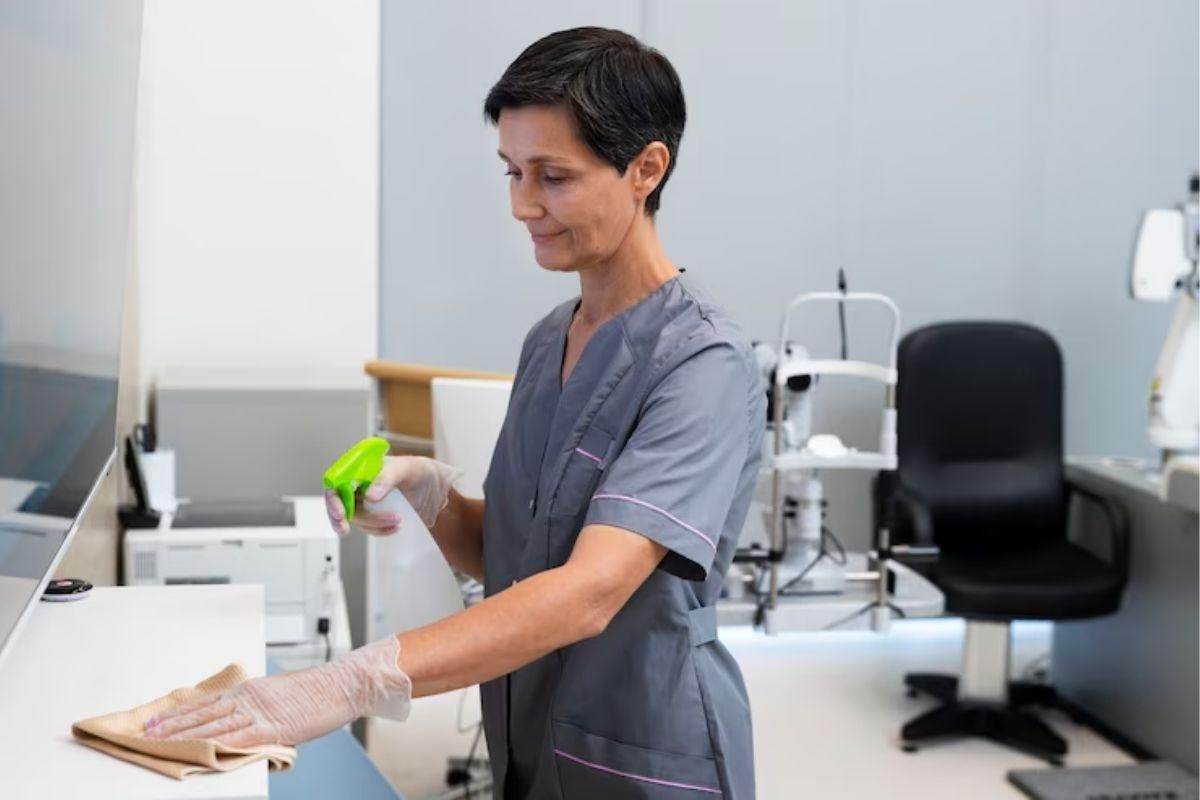Office Cleaning Standards: What Every Business Must Know
In today's fast-paced business world, especially in vibrant hubs like Sydney, a clean office isn't just a "nice-to-have" – it's a must-have. It impacts everything from employee health and productivity to your company's reputation. Did you know that a well-maintained workspace can increase productivity by up to 15%? That's a significant boost! But "clean" can mean different things to different people.
That's why understanding Office Cleaning Standards for Businesses is crucial. At EverydayClean, we're passionate about helping businesses create cleaner, healthier, and more productive environments. Let's dive into what you need to know.
Why Office Cleaning Standards Matter for Businesses
Your office needs regular care and attention to thrive. Neglecting office hygiene can have serious consequences:
- Employee Health: A dirty office is a breeding ground for germs, leading to increased sick days and reduced productivity.
- Client Perception: A messy or unclean office can create a negative impression on clients and visitors, potentially impacting your business relationships.
- Compliance Issues: Failing to meet commercial cleaning industry standards can lead to fines and legal problems.
- Productivity: The cleaner the space the clearer the mind.
Proper sanitization plays a vital role in preventing workplace illnesses and ensuring you're meeting all the necessary regulatory requirements. It's about creating a safe and healthy environment for everyone.
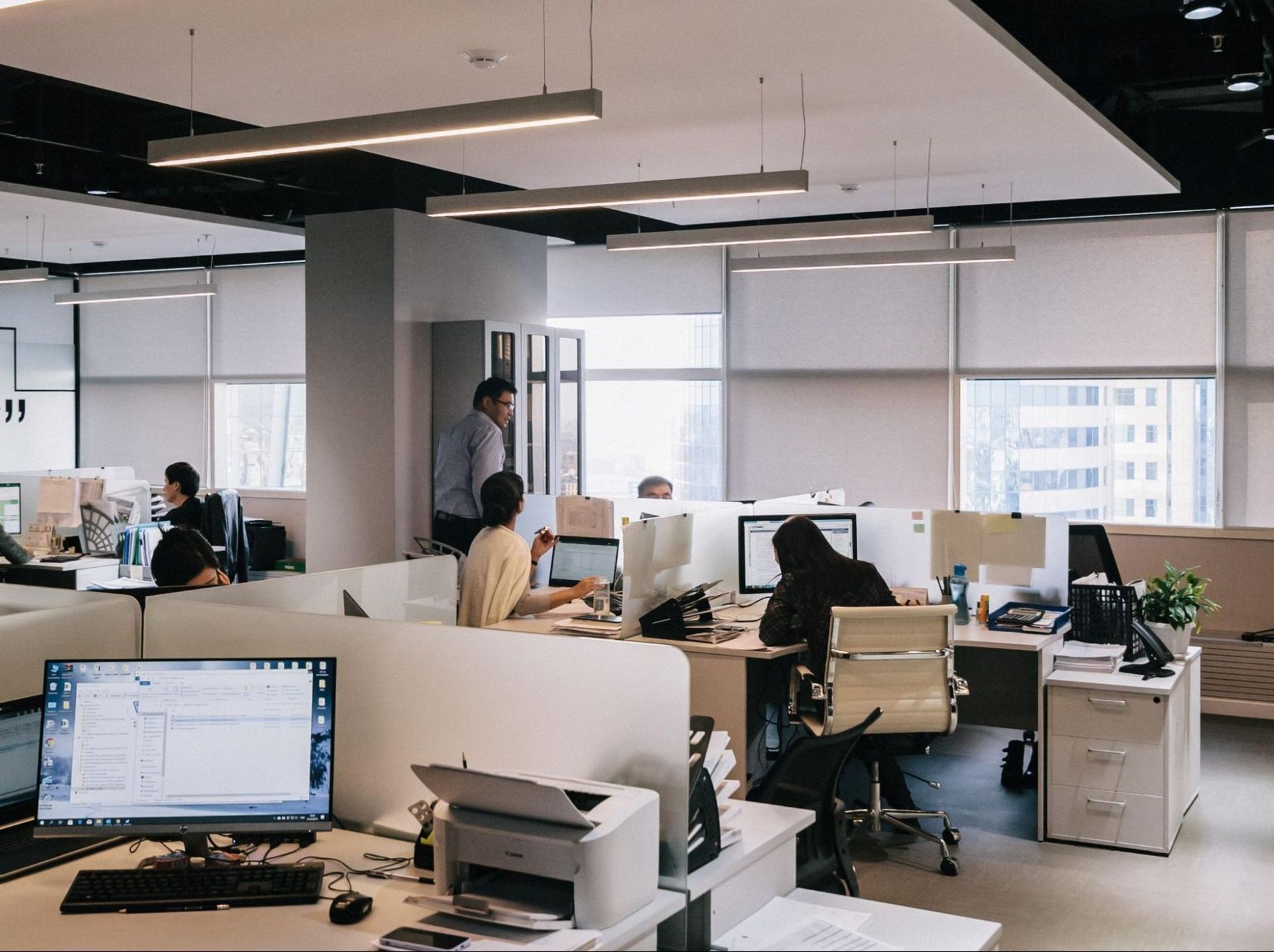
Understanding Office Cleaning Standards for Businesses
So, what exactly are these standards? Let's break it down:
Commercial Cleaning Industry Standards – What Are They?
In Australia, workplace health and safety is governed by various authorities, and they set guidelines for cleanliness and hygiene. These standards aren't just suggestions; they're often legally required. It's important to understand the differences between:
- General Cleaning: Basic tasks like dusting and vacuuming.
- Janitorial Services: More comprehensive cleaning, including restroom sanitation and waste removal.
- Deep Cleaning: Intensive cleaning that targets hidden dirt and germs, often requiring specialized equipment.
Businesses must follow these standards to maintain a clean and efficient operation, and to avoid potential penalties.
Health and Safety Office Cleaning Regulations – Ensuring Compliance
Australia's Work Health and Safety (WHS) Act outlines key regulations that businesses must follow. This includes maintaining a clean and safe work environment. To create a compliant cleaning plan:
- Understand the WHS Act: Familiarize yourself with the specific requirements for your industry and location.
- Develop a Cleaning Schedule: Create a regular cleaning schedule that addresses all areas of your office.
- Train Your Staff (or Hire Professionals): Ensure your cleaning staff (whether in-house or outsourced) is properly trained in safe cleaning practices.
- Use a checklist.
Common cleaning mistakes that can lead to non-compliance include:
- Using incorrect cleaning products.
- Neglecting high-touch areas.
- Failing to properly dispose of waste.
- Not having a documented cleaning plan.
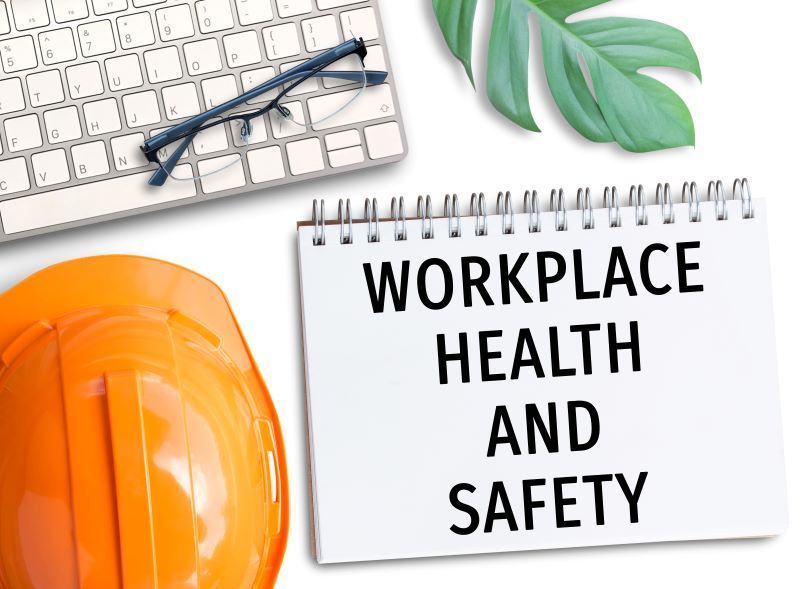
Best Practices for Office Cleaning & Sanitization
Let's get practical. Here are some best practices to keep your office sparkling and compliant:
Daily Cleaning vs. Deep Cleaning – What’s Required?
- Daily Cleaning: Focus on routine maintenance:
- Dusting desks, shelves, and other surfaces.
- Vacuuming or mopping floors.
- Disinfecting high-touch surfaces (doorknobs, light switches, keyboards, phones).
- Emptying bins.
- Cleaning and sanitizing restrooms.
- Scheduled Deep Cleaning: This tackles the less frequent but equally important tasks:
- Deep carpet cleaning.
- Upholstery cleaning.
- HVAC system cleaning (air ducts).
- Window cleaning (inside and out).
- Thorough cleaning of kitchen appliances and break rooms.
Regular, frequent cleaning schedules are essential for meeting health and safety office cleaning regulations.
The Role of Disinfection in Office Cleaning Standards
Disinfection is crucial , especially in today's health-conscious world. Focus on sanitizing high-touch points:
- Desks and workstations
- Door handles and light switches
- Shared equipment (printers, copiers, coffee machines)
- Restroom fixtures
Using hospital-grade disinfectants ensures optimal hygiene and safety. Integrate these best practices for office cleaning & sanitization into your daily and weekly routines.
Eco-Friendly Cleaning Standards for Workplaces – A Sustainable Approach
Green Cleaning Products and Their Benefits
There's a growing demand for eco-friendly cleaning standards for workplaces. This means using non-toxic, biodegradable cleaning agents that are safe for both people and the environment. The benefits include:
- Improved indoor air quality.
- Reduced exposure to harmful chemicals.
- A smaller environmental footprint.
Reducing Environmental Impact in Commercial Cleaning
This goes beyond just using green products. It includes:
- Using water-efficient cleaning methods.
- Minimizing the use of disposable cleaning supplies.
- Properly disposing of cleaning waste.
Businesses can ensure they meet commercial cleaning industry standards while maintaining sustainability. The long-term benefits of adopting green cleaning practices are significant, both for your business and the planet.
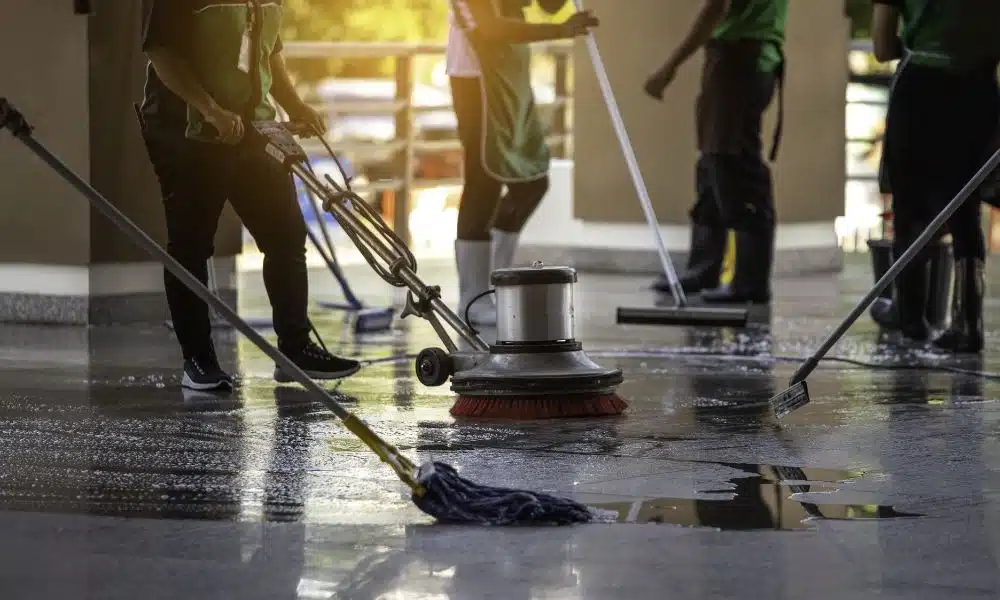
How to Choose the Right Office Cleaning Service That Meets Industry Standards
What to Look for in a Certified Office Cleaning Provider?
- Licensing and Insurance: Ensure they are properly licensed and insured to operate in your area.
- Compliance: Verify that they comply with all relevant health and safety regulations.
- Experience: Look for a company with a proven track record in commercial cleaning.
- Certifications: Check for relevant certifications that demonstrate their expertise.
Questions to Ask Before Hiring a Cleaning Service
- Do they follow the best practices for office cleaning & sanitization?
- What kind of training do their staff receive, particularly regarding regulatory compliance?
- Do they offer tailored cleaning plans that align with industry-specific needs?
- Do they use eco-friendly cleaning products?
- Can they provide references from other businesses?
Comparing Commercial Cleaning Services Based on Industry Standards
Don't just go for the cheapest option. Evaluate different providers based on their adherence to commercial cleaning industry standards. The lowest price might mean they're cutting corners on safety and compliance, which could cost you more in the long run.

Final Thoughts – Ensuring a Clean, Safe, and Compliant Workplace
Following office cleaning standards for businesses is not just about ticking boxes; it's about creating a healthy, productive, and positive environment for your employees and clients. It's about protecting your business from potential risks and demonstrating your commitment to quality. You can maintain high hygiene levels without breaking the bank by choosing the right cleaning practices and partners.
Ready to take your office cleanliness to the next level? Work with a certified office cleaning provider like EverydayClean to ensure compliance, workplace safety, and a sparkling clean environment. Contact us today for a consultation and let us help you create a workspace that shines!
